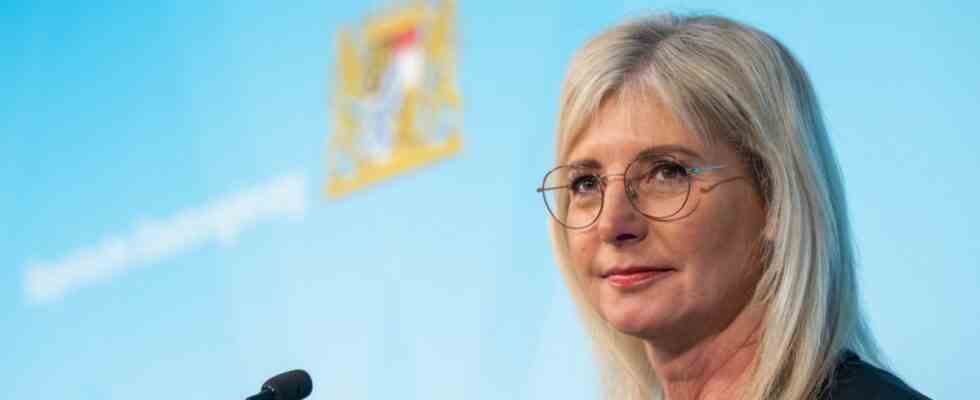Bavaria’s Social Affairs Minister Ulrike Scharf (CSU) has admitted that accessibility in the Free State is not progressing as quickly as once thought – but referred to progress in state buildings. The Bavarian Commissioner for the Disabled presented his report in the cabinet of Prime Minister Markus Söder (CSU). The journalist Holger Kiesel, who has been involved in clubs and initiatives on the subject since his school days due to his physical disability, is the only one of the eight state government representatives who is not a professional politician in the state parliament.
A good ten years ago, the then Prime Minister Horst Seehofer (CSU) announced that Bavaria would be “completely barrier-free” by 2023. Social Affairs Minister Scharf said on Monday after the cabinet that she was convinced that the participation of disabled people in Bavaria had become a matter of course, “we have come a long way in raising awareness”. However, she added that the announcement of the barrier-free Free State within ten years was too ambitious at the time.
“Bavaria barrier-free” remains the goal: for example, around 63 percent of the 3,000 state buildings are already barrier-free. “The value will certainly be even better in the next report,” said the minister. The Greens in the state parliament, on the other hand, called the 63 percent “shameful” and a “sad balance sheet”, he also only refers to buildings such as ministries or state museums. “It hardly affects most people in the country.”
Equal opportunities for people with disabilities is generally a central issue, affecting around twelve percent of the population, according to Scharf. The Free State supports inclusion with almost five billion euros a year, for example for the disabled and integration aid, the transition of employees from workshops to the general labor market or free travel in local transport. With a view to the state elections on October 8, she announced that the polling stations should be barrier-free and that election documents should be formulated in a way that everyone can understand without any hurdles; this is currently being worked on together with the Ministry of the Interior.

